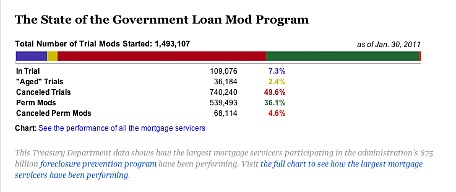In the wake of yesterday’s “Twitter townhall,” The Boston Globe put together an interesting infographic comparing Twitter users’ #askObama questions with the past two weeks of questions at White House press briefings and gaggles. At his blog, Matthew Yglesias pulled out the most striking discrepancy: while a full 24 percent of reporters’ questions focused on negotiations with Congress, only 2 percent of the questions in the Globe’s Twitter sample did so. The upshot, Yglesias writes, is that “nobody cares about the press corps’ process questions”:
Ordinary people don’t care about politics all that much. But when they do decide to pay attention to politics, it’s because they’re worried about jobs or the environment or energy prices or taxes or something. It’s never because they’re wondering how the president reacted to Steny Hoyer’s remarks about Eric Cantor’s characterization of the Treasury secretary’s statement about the debt ceiling.
Very true! But I want to focus on something else the Globe graphic showed: over the last two weeks, reporters at those White House press briefings asked zero questions about education (including student loans and college tuition) and zero about housing.
That echoes what I found last week when I looked at reporters’ questions at formal press conferences during Obama’s presidency: those topics, which are central to the economic experience of most American households, are simply not on the radar of the White House press corps.
If you check out the Globe’s graphic, you’ll see that housing and education weren’t highly represented in their sample of 13,000 #askObama tweets, either. But during the townhall itself, moderator Jack Dorsey said that 10 percent of the incoming questions dealt with education, and another 6 percent with housing. Given the diversity of topics represented in the questions, and the fact that neither of those subjects are driving current news events, that’s a pretty good indication of interest. Two questions were actually asked about each of the topics, and Obama gave answers that were, if not exactly revelatory, fairly substantial. (He also brought up the housing crisis unprompted, in reply to a question about failures his administration had made in responding to the recession.)
Afterward, Washington Post reporters Peter Wallstein and Cecilia Kang noted how unusual the comments on housing were, writing:
President Obama made a rare admission of a policy misstep Wednesday, acknowledging that his administration failed to provide enough support to struggling homeowners and recognize the scope of the nation’s housing crisis.
…Obama has not often discussed the housing crisis with much of his time in Washington and on the campaign trail focused on job creation and deficit reduction.
To restate second graf that from a press-critic’s perspective, White House reporters have allowed Obama to focus his time on those subjects (which are, to be sure, newsworthy), and on the process questions that flow from them.
One outlet that has stayed focused on the housing crisis is ProPublica, which put out an #askObama question of its own, wondering if, in light of the government’s support for big banks, the president thought his administration had done enough for homeowners. The ProPublica team followed that up with a tweet linking to its coverage of the government’s mortgage modification program, which is supposed to help stem foreclosures by giving loan servicers incentives to work with underwater homeowners. That page opens with this chart, showing that cancelled trial modifications (the red bar) far outnumber permanent modifications (the green bar):

There are obvious implications there for the individual homeowners seeking relief. But this problem probably isn’t distinct from the country’s broader macroeconomic and fiscal challenges. Mike Konczal, an economist at the liberal Roosevelt Institute, has argued that to the extent that elevated unemployment is “structural,” underwater mortgages are partly to blame; economists at the International Monetary Fund
came to a similar conclusion last year. If that’s true, a more effective response here would have put more people in jobs—and that, in turn, would have taken some pressure off state and federal budgets. And maybe it still could.
So with that in mind, reporters on the White House beat might want to take a cue from the #askObama participants, and ask some follow-up questions of Obama and his spokespeople. Our readers may have better ideas, but here are some suggestions on the housing front:
• You say your administration is still putting pressure on banks to help lenders. Which groups of homeowners are you trying to help? Is relief for option ARM mortgages enough? If not, why will your current approach succeed when past efforts didn’t?
• You said that “some of the banks didn’t do a very good job” of filing foreclosure papers. Do you believe investigations into fraud or other violations are warranted?
• Once the immediate crisis passes, does your administration have a plan to encourage a more low-cost equilibrium for housing prices?
Or, on education:
• You talk a lot about the need for higher education, and also about the benefits of competition. What can the government do to encourage competition among colleges to help bring costs down?
Alternately, they could avoid covering these pocketbook policy questions by asking how the president reacted to Steny Hoyer’s remarks about Eric Cantor’s characterization of the Treasury secretary’s statement about the debt ceiling.
Greg Marx is an associate editor at CJR. Follow him on Twitter @gregamarx.
